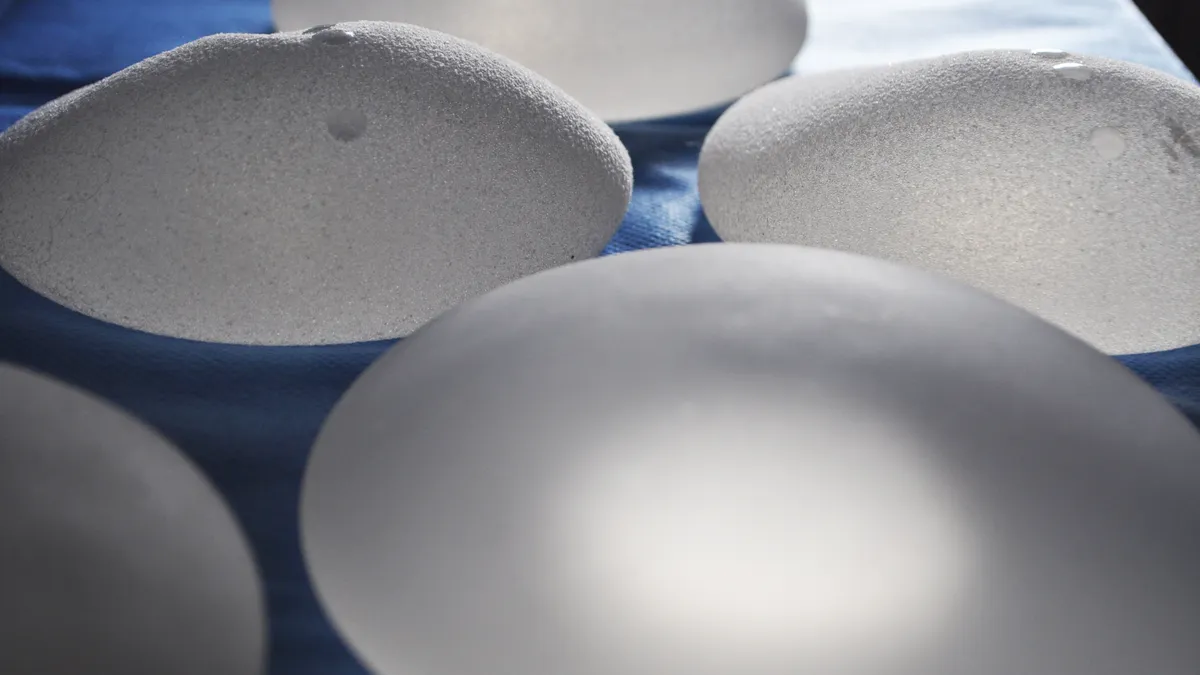Dive Brief:
- FDA is restricting the sale and distribution of breast implants over concerns about the risks of the devices, limiting the products to healthcare providers and facilities that review a decision checklist with each patient.
- The restrictions reflect FDA's finding that measures are needed "to provide a reasonable assurance of the device's safety and effectiveness" given links between breast implants and a type of cancer.
- FDA disclosed the restrictions alongside news of the implementation of a boxed warning, in line with recommendations set out in final guidance published by FDA last year, and details of the "inadequate" progress of post-approval studies.
Dive Insight:
The actions are the culmination of work that began in 2019, when FDA convened an advisory panel to discuss how to respond to cases of a cancer called breast implant associated anaplastic large cell lymphoma (BIA-ALCL). FDA formalized the recommendations made at the event in final guidance 18 months after the advisory panel meeting. The latest set of actions further build on the 2019 recommendations.
As a result of the order issued Wednesday, "only healthcare providers and facilities that provide information to patients utilizing the patient brochure 'Patient Decision Checklist'" will be able to sell and distribute breast implants. Providers must review the checklist with all prospective patients to help ensure they understand "the risks, benefits and other information about the breast implant device."
Patients must be given a chance to initial and sign the checklist. In the example checklist created by FDA last year, the patient needs to initial a page to indicate that they "have received information regarding the overall incidence rates of BIA-ALCL and the rates as they pertain to my specific breast implant." The physician implanting the device must also sign the checklist.
The second set of changes adopted by FDA relate to the labeling of breast implants. In line with the 2020 guidance, FDA has asked manufacturers to add a boxed warning about the "significant risks" of breast implants and other information. FDA directed the request to Allergan, J&J brand Mentor, Ideal Implant and Sientra.
The labeling also includes updated silicone gel-filled breast implant rupture screening advice and a detailed list of materials used in the device.
FDA also provided an update on post-approval studies. The agency said studies run by Allergan, J&J and Sientra have made inadequate progress. Ideal Implant has made adequate progress on its study.
FDA's breast implant labeling guidance was developed with input from a 2019 expert advisory panel that heard from dozens of patients who testified about their experiences after developing the cancer BIA-ALCL or systemic symptoms described as "breast implant illness." FDA said its intent in issuing the labeling guidance is to address concerns that some patients are not receiving or understanding the risks of the devices.
The risk of developing BIA-ALCL is considered low, but the cancer is serious and can lead to death, FDA has said.











